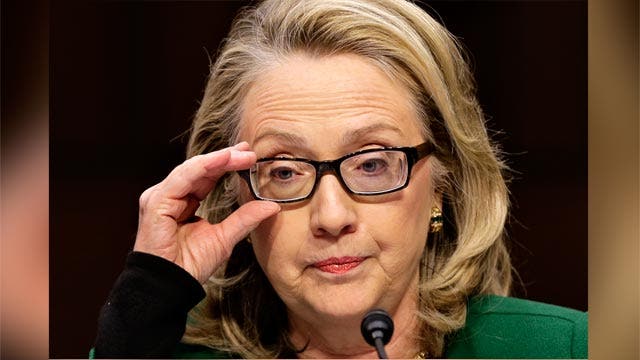Lawmakers grill Sec. Clinton in Benghazi hearings
Secretary of State testifies on Capitol Hill
Secretary of State Hillary Clinton, in what amounted to her exit interview on Capitol Hill, gave an ominous preview of the threats facing America in North Africa and the Middle East -- suggesting the U.S. may be mired in the region for years to come.
The hearings Wednesday before House and Senate committees were meant to address the terror attack Sept. 11 in Libya. A feisty Clinton adamantly defended the administration during the course of those hearings, and at one point she lashed out at a senator who suggested officials misled the public about the consulate attack.
But pulsing through the drama on Capitol Hill on Wednesday was a significant message from the outgoing secretary. She warned that the United States will have to contend with Al Qaeda "wanna-bes and affiliates" going forward -- and that the threat is already flaring in places like Mali and Algeria, as well as Libya.
"Make no mistake about it, we've got to have a better strategy," she said.
In Mali, where the U.S. military is helping fly French troops and supplies in and out of the country in support of a French military operation, Clinton compared the situation to Afghanistan.
"This is going to be a very serious, ongoing threat," she said. "If you look at the size of northern Mali, and if you look at the topography, it's not only desert, it's caves -- sounds reminiscent."
She added: "We are in for a struggle, but it is a necessary struggle."
France went into Mali on Jan. 11 after Islamist fighters captured a key town. The international community has been concerned about the Islamists' advances. While the government controls the south, Al Qaeda-tied militants run the north.
"We cannot permit northern Mali to become a safe haven," Clinton said, while arguing in favor of a pro-active U.S. policy there.
"People say to me all the time, 'well AQIM (Al Qaeda in the Islamic Maghreb) hasn't attacked the United States,'" she said. "Well, before 9/11, 2001, we hadn't been attacked on our homeland since I guess the War of 1812 and Pearl Harbor. So you can't say, well, because they haven't done something they're not going to do it."
The secretary went on to describe how overthrowing Muammar Qaddafi in Libya has further fueled instability in the region, saying weapons from that heavily armed regime have streamed into the rest of North Africa.
"This Pandora's Box, if you will, of weapons coming out of these countries in the Middle East and North Africa, is the source of one of our biggest threats," she said.
She said she could not confirm reports that terrorists involved in the attack on the U.S. compound in Benghazi were also involved in the recent hostage crisis in Algeria, in which at least 37 people, including three Americans, were killed. But she confirmed that Libyan weapons were indeed involved.
"There's no doubt that the Algerian terrorists had weapons from Libya," she said. "There's no doubt that the Malian remnants of AQIM have weapons from Libya."





